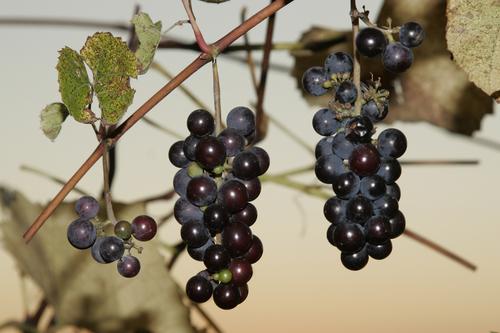Basile Tesseron, who runs the Lafon-Rochet estate (one of the ten Quatrièmes Crus [Fourth Growths] listed in Emperor Napoleon III's Bordeaux Wine Official Classification of 1855), is walking away from the organic process for his wine, and while he won't tell other farmers what to do, he notes that organic marketing's 'you are with us or against us' ultimatums are not worth it. And after two bad years for crops that means more Bordeaux viticulture will do the same.
The reason Tesseron is walking away is copper sulfate, a fungicide certified by organic marketing groups. While it is no more toxic than a product like glyphosate, it was replaced long ago by modern scientific approaches because it doesn't work all that well, and resistance happens over 150 years or so of use - the doses used now can be extremely high in order to protect yields, and that is damaging the soil.
Grapes will grow anywhere. It is the microbial terroir of Bordeaux that sets their wines apart. The soil there is an actual input for wine flavor and overdosing the soil with a chemical like copper sulfate can be damaging, even if Whole Foods customers don't believe an organic pesticide is a chemical. But it is not just winemakers who should be walking away from the feel-good fallacies of organic industry trade groups. Concern about inputs should be on the minds of everyone who cares about agriculture. Though most organic marketing departments spin it so that their chemical is not a chemical, soil depletion is a science issue.
This toxic chemical is organic, certified - and overused. Structure: Pubchem
Legitimate organic groups concede the point when asked directly. Nate Lewis, farm policy director for the Organic Trade Association (not to be confused with the Organic Consumers Association attack site) told Tamar Haspel of the Washington Post, “I don’t like the narrative that organic is pesticide-free. It’s not. They do use things that are toxic to the environment."
Tesseron is more nuanced, even though he had invested a small fortune in switching to organic just a few years ago and is now abandoning it; "the so-called natural products are not always the best."
Indeed. That is why they were replaced by better compounds. No one sane advocates going back to teletype machines or believing that polio will disappear if we just let all the people with polio die, yet in agriculture old ways have become a $100 billion business marketing goods to people who don't understand science or understand how preventing crops from blight is necessary.
Napoleon III was so busy thinking about his wine he was routinely outmaneuvered by Bismarck of Prussia in Europe and then easily defeated by von Moltke in the Franco-Prussian War.(1) Twenty-first century France likewise seems determined to remove itself from the world stage by catering to short-term populism when it comes to science and agriculture. Their current policies - basically, ban everything - risks losing ground for an entire generation of farmers. That could be devastating for the future of wine. I mentioned the microbial terroir in Bordeaux. As science in America continues to march on without Europe, our microbiologists will hone in on replicating that terroir, so then it can be recreated anywhere. That will make it possible for flavors indistinguishable from Bordeaux to be grown in more scientifically progressive countries like Chile or the U.S. Competitors to Bordeaux won't need French politicians to ruin the French wine industry, French scientists will have made their decline into being just another regional player a certainty; by assuming that French science was not worth the culture war.
NOTE:
(1) Thanks for giving us that Second Reich, France.





